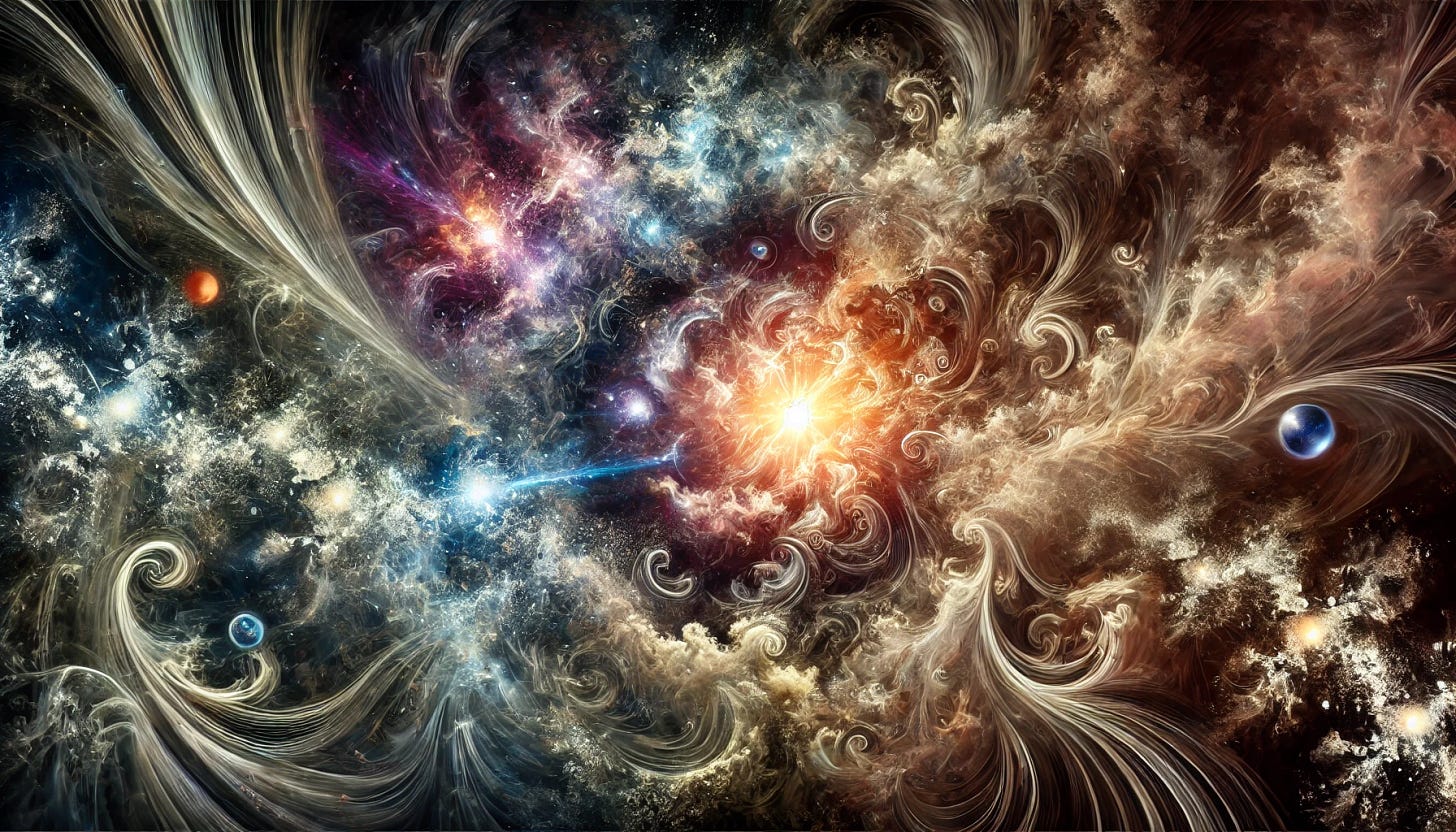Hi there! It's been a while! We've been busy, but few of our determined readers have asked us to generate some randomness into their lives. So, we thought, why not stochastically write about the concept of randomness in this universe.
As usual, let’s start with some juicy ‘creation myths around the world’. But before we begin let’s define some terms in simplest scientific way to ensure we all read the scriptures on common ground!
Glossary
Chaos : Chaos is unpredictable behavior in complex systems, where small changes lead to vastly different outcomes.
Void : void refers to an empty space or region in the universe where matter is nearly absent, such as the vast empty areas between galaxies. It's essentially a region of space with very low density, containing very few particles, energy, or objects
Random : Random refers to a non-deterministic behavior or outcome at any point in time, meaning that the result cannot be predicted with certainty, even if all initial conditions or inputs are known
Now we have defined them! Let’s look at some juicy ‘Creation Myths’ around the world.
Creation Myths
Hinduism
The Rigveda, specifically the Nasadiya Sukta (Hymn of Creation), presents a concept of the universe emerging from a primordial void. It describes a time before the universe existed, where there was neither existence nor non-existence, no air, and no sky, just darkness and a deep void. The hymn ponders how creation might have come from this chaotic state.
Buddhism
In Buddhism, the universe undergoes cycles of creation and destruction. At the end of each cycle, the universe dissolves into a state of nothingness or chaos, from which it will eventually be reconstituted.
Abrahamic Religions
The Book of Genesis in the Bible describes the creation of the world by God. Before creation, there was "tohu wa-bohu" often translated as "formless and void," indicating a chaotic state of the earth before God brought order to it.
Big Bang
The Big Bang theory is the scientific explanation of the universe's origin. It posits that the universe began as a singularity, a point of infinite density and temperature, about 13.8 billion years ago. The initial moments after the Big Bang were characterized by extreme chaos, with rapid expansion and the formation of basic particles and forces from this chaotic state.
Wow, nice, isn't it? Some common themes in all creation myths are...
Chaos
Void
Randomness
Fooled By Randomness
In our daily lives, we are often fooled by randomness. Thoughts, events, and outcomes can sometimes become random and induce chaos in our lives. Often, we assign meaning to this randomness with words like 'Fate', 'Karma', 'Nature', or even 'God'. However, we must remember the words of Nassim Nicholas Taleb in his book Fooled by Randomness, which can be summarized as follows
The winners are those who can harness the power of randomness, turning uncertainty into opportunity
Predicting Randomness
Rather than me writing paragraphs about this, Please watch the video from Action Lab on predicting randomness!
I am going to leave the words of Sir Francis Galton here as a summary
Whenever a large sample of chaotic elements are taken in hand and marshaled in the order of their magnitude, an unsuspected and most beautiful form of regularity proves to have been latent all along.
Mind-blowing, isn't it? Suddenly, prophets, prophecies, and the art of foreseeing the future seem like a clever dance with probabilities.
Did you know ?
Cryptography relies heavily on randomness to secure information. Randomness ensures that cryptographic keys, which are essential for encrypting and decrypting data, are unpredictable and unique. This unpredictability is crucial for preventing unauthorized access, as it makes it nearly impossible for attackers to guess or calculate the keys. High-quality randomness in cryptographic processes is the backbone of secure communication, safeguarding data from interception, tampering, and other forms of cyber threats. Without effective randomness, the security of cryptographic systems would be compromised.
Above is a good example of how humanity has turned randomness around us in to an opportunity for confidential communication.
Sayonara!
References
[1] Nasadiya Sukta
[3] Tohu Wa Bohu

